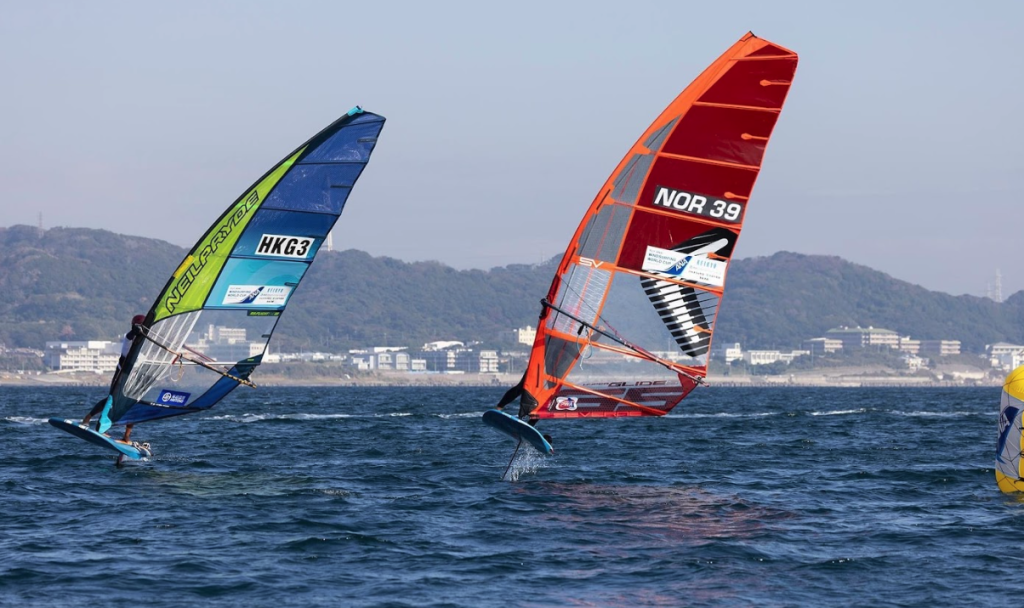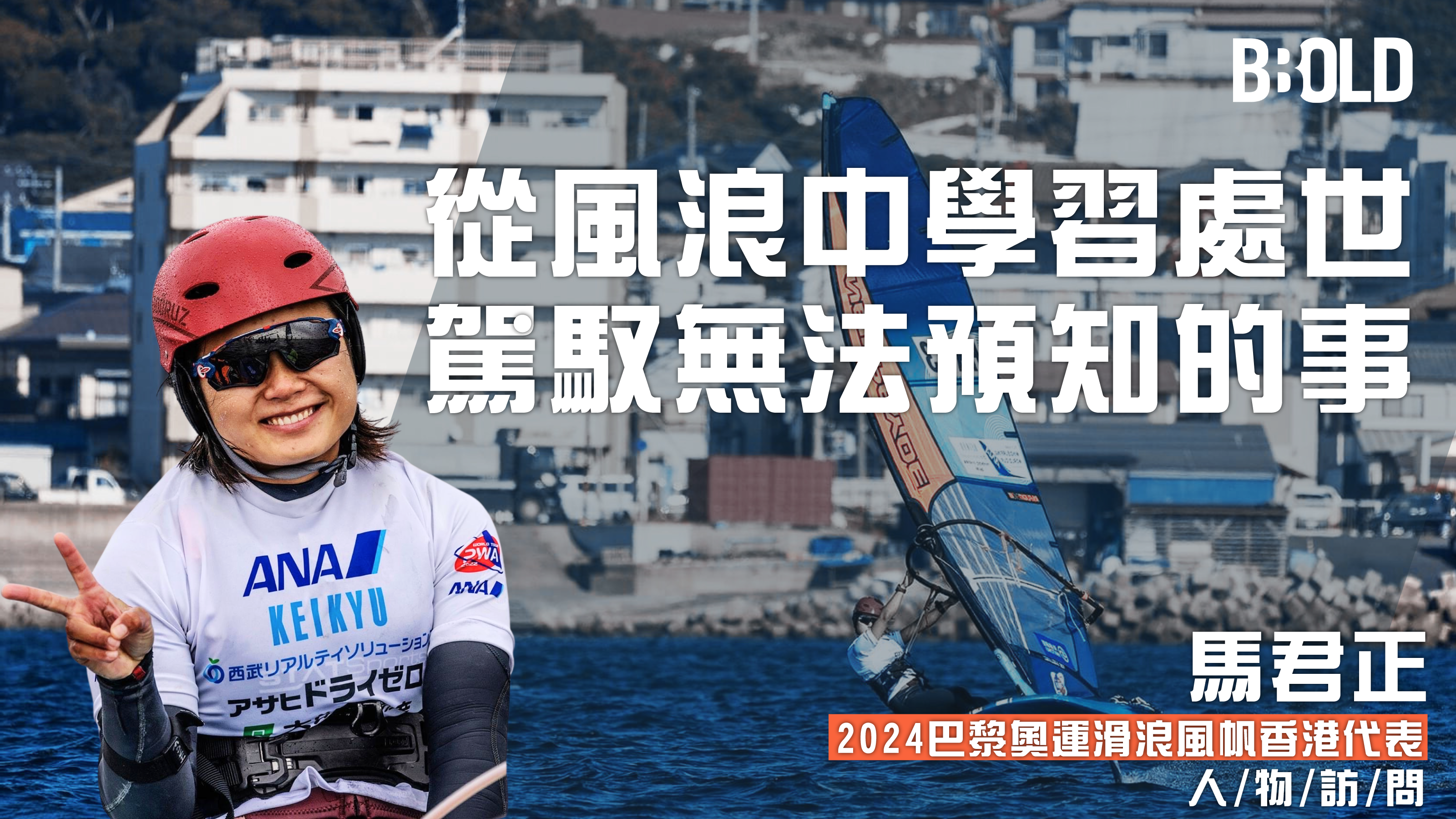Many children participate in extracurricular activities that are arranged by their families, but this particular child had her family choose to accompany her in learning a sport from scratch. Since she was seven years old, they have supported her journey, and through their continuous efforts, this “child,” Ma Kwan-ching, has realized her dream of becoming the Hong Kong representative in windsurfing at the 2024 Paris Olympics.

Kwan-ching noted that neither she nor her family had any special athletic talent, but they all possessed the perseverance to keep learning and practicing. Because her family learned and practiced alongside her, they gained a deeper understanding of her experiences and needs, providing unwavering support throughout her journey.
With just over two months until the Olympics, it still feels like a dream for athletes. Kwan-ching shared, “What struck me the most was stepping onto the Olympic venue and hearing the cheers from the crowd. Since windsurfing takes place further away from the competition area, you can’t witness the races without taking a speedboat, so the cheering before heading out to sea was truly overwhelming.” She expressed her joy at seeing so many people come together for the sport.
Kwan-ching described that in windsurfing competitions, the greatest challenges for athletes arise not only from weather and sea conditions but also from unpredictable elements within the competition format. For instance, British athlete Emma Wilson won eight out of fourteen races, but because she was always the first to finish, she didn’t have the opportunity to familiarize herself with the course in the final knockout rounds. Kwan-ching explained, “Since she was in first place, she didn’t get to practice the course, which is unfortunate. In the end, she took home a bronze medal, and I feel for her; it must be disappointing.” Kwan-ching acknowledged that the unpredictable nature of windsurfing competitions poses significant challenges for athletes.

For Kwan-ching, even though the competition is held abroad, they have conducted extensive site visits over the past five or six years and have adapted well to the racing conditions in Marseille. This year’s Olympics will feature a new board type, the “iQFOiL,” replacing the previous RS:X class. Kwan-ching indicated that she would focus on training with the iQFOiL moving forward. As all the equipment becomes lighter, it symbolizes progress in the sport. She believes that windsurfing has a relatively low physical threshold, making it an accessible challenge for women.
Windsurfing with Family as a Source of Motivation
Kwan-ching initially got into windsurfing with her family. Interestingly, she recalls that neither she nor her family had any athletic talent; she considered herself unskilled in ball sports and felt her coordination was weaker than others. While learning windsurfing, she didn’t believe she had much talent either. She mentioned, “At seven, I was still very young and didn’t really like windsurfing. Like most kids, I hadn’t found my direction yet…”

Moreover, twenty years ago, the equipment was not well developed, and many of the tools were quite heavy. As a child, she found it particularly strenuous. Although she didn’t consider herself gifted, her dedication made up for it. She practiced consistently until she gradually realized at the age of 14 that she truly loved windsurfing, drawn to the speed and freedom it offered. This passion even led her to dream of representing Hong Kong and ultimately deciding to become a full-time athlete.

Ma Kwan-ching is Hong Kong’s first female athlete to compete in the PWA World Tour. As the pioneer, she shared, “At that time, I felt there were no other girls in Hong Kong doing this, so I wanted to challenge myself. The difficulty stemmed from being the first, with my coach not around, and the equipment being more than what the Olympics used. I once had to carry 100 kilograms of luggage by myself to Japan—it was extremely tough and unforgettable.”

Injured During Practice, Required 17 Stitches, but Overcame with Time
In a 2016 competition in Taiwan, despite an approaching typhoon, she insisted on practicing. Unfortunately, she was struck by a broken sail and fell into the sea, ultimately swimming back to shore with sheer will, even requiring 17 stitches. She reflected, “After the accident, I was afraid of the water for a while. I’m grateful to have had my windsurfing coach’s support, encouraging me to challenge nature again in such rough conditions, helping me climb back out to sea.” To reach her Olympic dreams, she had to overcome her fears.
Kwan-ching’s ability to bounce back from serious accidents and successfully compete in the Olympics reflects her strong and determined character, which is a testament to the challenges faced in extreme sports. She understands that many people in Hong Kong view extreme sports as dangerous, but with proper training and risk management, the reality is not as perilous as it seems. She hopes the next generation will receive proper marine education, learning to coexist peacefully with nature while challenging it within their limits and with a humble attitude.
If she had to describe windsurfing in one word, she would choose “attitude.” Kwan-ching elaborated, “I would say that your perseverance over the years in facing the waves is a form of resilience. Whether you get up early to windsurf or practice, it’s all a matter of will. Over the years, facing the waves and getting back up after accidents is a life experience in itself. The unpredictability of the waves is somewhat akin to the many challenges one encounters in life.”

The rhythm of the waves is like life, with its highs and lows, always full of uncertainties. But as long as you don’t give up, you can overcome challenge after challenge.

